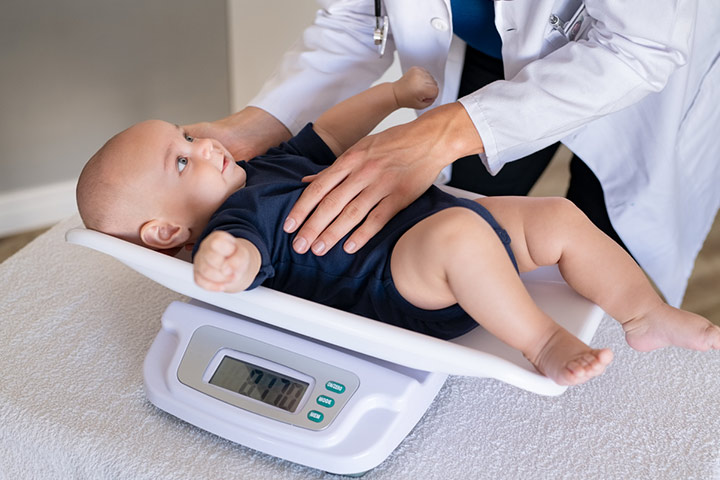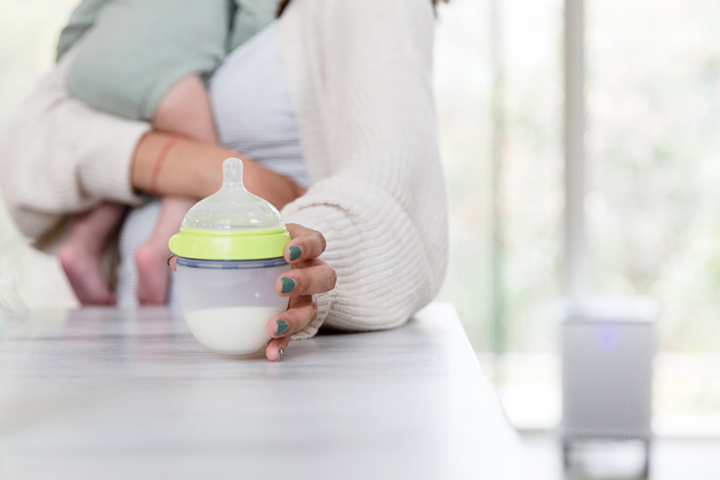
Image: Shutterstock
Breastfeeding is a natural process, but it has been seen to be associated with its own set of problems. And it doesn’t take a long time for things to escalate or worsen. Your nursing journey is long, and some roadblocks are destined. The good news is, with the support of experts, you can easily tackle them.
New moms can have breastfeeding problems. These issues interfere with milk quality and, ultimately, the nutrition that your baby needs to grow and develop. If you’re experiencing difficulty breastfeeding your child, you’ll observe some symptoms. Below listed are the warning signs that your breastfeeding method isn’t working:
1. Nursing Sessions Are Too Long Or Extremely Short
Image: IStock
In the first few months, if your breastfeeding sessions are shorter than ten minutes, it could be a hint that your baby isn’t getting the right amount of milk. It could mean an issue with the way they latch or that your breasts aren’t stimulating enough milk production to support your baby’s needs. Alternatively, if your sessions last longer than fifty minutes, your baby may not be suckling well or have a low milk supply (1).
2. Your Baby Is Dissatisfied
Image: IStock
If your baby seems fussy after the breastfeeding session, she could be having trouble ingesting the amount of milk required. Get her weight checked by the pediatrician. Check her latch and position so you can ensure that she receives enough milk (2).
3. Your Baby Is Missing Nursing Sessions Or Sleeps The Whole Night
Image: IStock
When breastfeeding a newborn, frequent feedings are necessary. They need to be fed at regular intervals, so they gain sufficient weight and can fight the failure to thrive (3). If you notice that your baby sleeps longer than four hours each night, try waking her up and breastfeeding. Also, check if your baby is swallowing when they receive your milk supply. That’s a sign your baby is taking in milk, the absence of which should alarm you to call the pediatrician immediately.
4. Your Baby Hasn’t Gained Weight
Image: IStock
Ideally, your baby should gain weight by at least five to seven ounces each week since you began supplying your breastmilk. Loss of weight or stagnant weight is a clear sign that they aren’t getting adequate milk (4).
5. Your Baby Produces Fewer Wet Diapers
Image: IStock
At the close of the seventh day, your baby should have more than six wet diapers and four stools per day on average. If your baby doesn’t have regular bowel movements, their urine is dark yellow or red, or stools are dark yellow and frequently loose, it’s time to speak to your doctor. It’s a good practice to record your baby’s feedings and diaper changes during the early days. This will help you know if they are progressing well (5).
6. Your Breasts Don’t Fill In With Milk
Image: IStock
If your milk doesn’t flow after five days of childbirth, your milk doesn’t flow, or you don’t feel milk filling your breasts, get your baby’s weight monitored (6). Weight can accurately tell whether your baby is getting enough milk from the mother. Also, get your breasts thoroughly checked to learn the cause of little or no milk supply.
7. You Suffer From Severe Breast Engorgement
Image: IStock
Are you experiencing hard or painful breasts? Unrelieved breast engorgement can drastically reduce your milk supply. This may prevent your baby from latching effectively and hence, interfere with nursing. Instead, you might need to express breast milk manually or with the help of an electric breast pump til your breasts have softened naturally (7).
8. Your Breasts Are Still Hard Or Full After Feeding
Image: IStock
If you feel that your breasts are still heavy, painful, and full after nursing, it could be a sign your baby isn’t drinking enough or may be latching on to your nipples incorrectly (8).
9. Your Nipples Are Sore
Image: IStock
When your baby doesn’t latch correctly, your nipples can be swollen, painful, or cracked. This may interfere with nursing and leave your baby unsatiated. You need to consult your doctor immediately so they can check for breast or nipple infections or mastitis and help you with the proper steps of latching on (9). You may be advised to breastfeed your baby on the less sore nipple or use an electric breast pump till you undergo healing.
10. You Notice No Sensations Of The Milk Let-Down Reflex
Image: IStock
If you have weird and excruciating sensations, it usually means you have a problem making sufficient milk through your breasts that hampers milk supply to your baby (10). Your doctor needs to monitor your infant and observe the breastfeeding technique closely.
While checking your baby’s weight, note that the scales vary. Breastfeeding babies gain weight differently than formula-fed ones. So, don’t fret if your baby struggles to gain weight as per the growth charts. Your doctor should be able to give you the right advice on your baby’s weight gain or loss. Did you suffer from breastfeeding issues while nursing your baby? Do share your experiences with us in the comments section below!






















